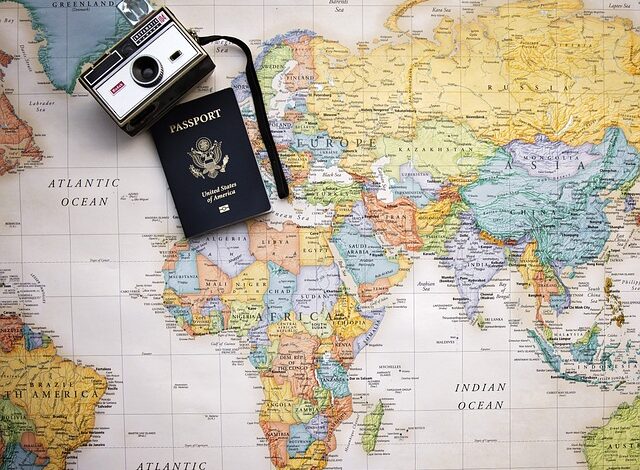How to Use Your Health Insurance When Traveling Abroad as a UK Resident

Traveling abroad can be an exhilarating experience, offering the chance to explore new cultures, cuisines, and landscapes. However, one of the most critical aspects of international travel is ensuring that you have adequate health coverage while away from home. As a UK resident, navigating your health insurance options when traveling abroad may seem daunting, but with the right preparation and knowledge, you can enjoy peace of mind knowing you’re covered in case of emergencies.
In this comprehensive guide, we will walk you through how to use your health insurance effectively when traveling abroad, including understanding the European Health Insurance Card (EHIC), private travel insurance, and other essential tips for staying safe and healthy on your journey.
1. Understanding the European Health Insurance Card (EHIC)
If you’re traveling within Europe, the European Health Insurance Card (EHIC) is your first line of defense. This card allows UK residents access to state-provided healthcare in EU countries, Iceland, Liechtenstein, Norway, and Switzerland at a reduced cost or sometimes for free. Here’s what you need to know:
- Who Can Apply? Any UK resident who has paid National Insurance contributions or is entitled to benefits can apply for an EHIC.
- What Does It Cover? The EHIC covers necessary medical treatment until you return to the UK. This includes emergency care, treatment for pre-existing conditions, routine maternity care (if not giving birth), and dialysis for kidney failure patients.
- Important Notes:
- The level of coverage depends on the country you’re visiting. Some countries may charge small fees for certain services.
- The EHIC does NOT cover everything. For example, it doesn’t cover repatriation costs, mountain rescue, or private healthcare.
To apply for an EHIC, visit the official NHS website and follow the simple application process. Remember to carry your card with you whenever you travel to eligible destinations.
2. Supplemental Private Travel Insurance
While the EHIC provides valuable coverage in many parts of Europe, it’s important to note its limitations. To ensure comprehensive protection, consider purchasing private travel insurance. Here’s why:
- Global Coverage: Unlike the EHIC, which is limited to specific regions, private travel insurance often offers worldwide coverage, including non-EU countries like the USA, Canada, Australia, and more.
- Additional Benefits: Private policies typically include benefits such as:
- Emergency evacuation and repatriation
- Medical expenses beyond those covered by the EHIC
- Cancellation and curtailment of trips
- Lost luggage and personal belongings
- Pre-Existing Conditions: Many insurers offer additional riders or plans that cover pre-existing medical conditions, though these might come at an extra cost.
When choosing a policy, carefully read the terms and conditions to understand exactly what’s included. Look for reputable providers and compare quotes online to find the best value for your needs.
3. Steps to Take Before You Travel
Proper planning is key to ensuring your health insurance works seamlessly during your trip. Follow these steps before departure:
Step 1: Research Destination-Specific Requirements
Different countries have varying healthcare systems and requirements. For instance, some nations require proof of insurance upon entry, while others expect visitors to pay upfront for treatments and seek reimbursement later. Familiarize yourself with local regulations to avoid surprises.
Step 2: Notify Your Insurer
Inform your insurance provider about your upcoming trip, especially if you’re traveling to high-risk areas or engaging in adventure activities. Some policies may impose restrictions based on destination or activity type.
Step 3: Carry Essential Documents
Always bring copies of your insurance policy documents, EHIC (if applicable), and any relevant prescriptions or medical records. Keep digital backups stored securely in case physical copies are lost.
Step 4: Save Contact Information
Note down emergency contact numbers provided by your insurer and keep them easily accessible. These contacts can assist you in locating approved hospitals, arranging transportation, or handling claims.
4. What to Do If You Need Medical Attention Abroad
Even with thorough preparation, accidents and illnesses can still occur. Should you require medical attention while abroad, follow these steps:
Step 1: Seek Immediate Care
Visit the nearest hospital or clinic. In urgent situations, call local emergency services or head straight to the emergency room.
Step 2: Present Your EHIC or Insurance Card
If using the EHIC, show your card to the healthcare provider to confirm eligibility for reduced-cost or free treatment. For private insurance, provide your policy details and identification.
Step 3: Document Everything
Keep all receipts, invoices, and medical reports related to your treatment. These documents will be necessary for filing claims upon returning home.
Step 4: Contact Your Insurer
As soon as possible, notify your insurance company about the incident. They can guide you through the claims process and help resolve any issues quickly.
5. Additional Tips for Staying Healthy While Traveling
Beyond securing proper health insurance, there are several proactive measures you can take to minimize risks:
- Get Vaccinated: Check whether your destination requires specific vaccinations and schedule appointments well in advance.
- Pack Medications: Bring enough medication to last the entire trip, along with a doctor’s note explaining their necessity.
- Stay Hydrated and Eat Wisely: Drink bottled water and choose reputable restaurants to reduce the risk of foodborne illnesses.
- Purchase a Portable First Aid Kit: A small kit containing essentials like bandages, antiseptics, and pain relievers can prove invaluable.




